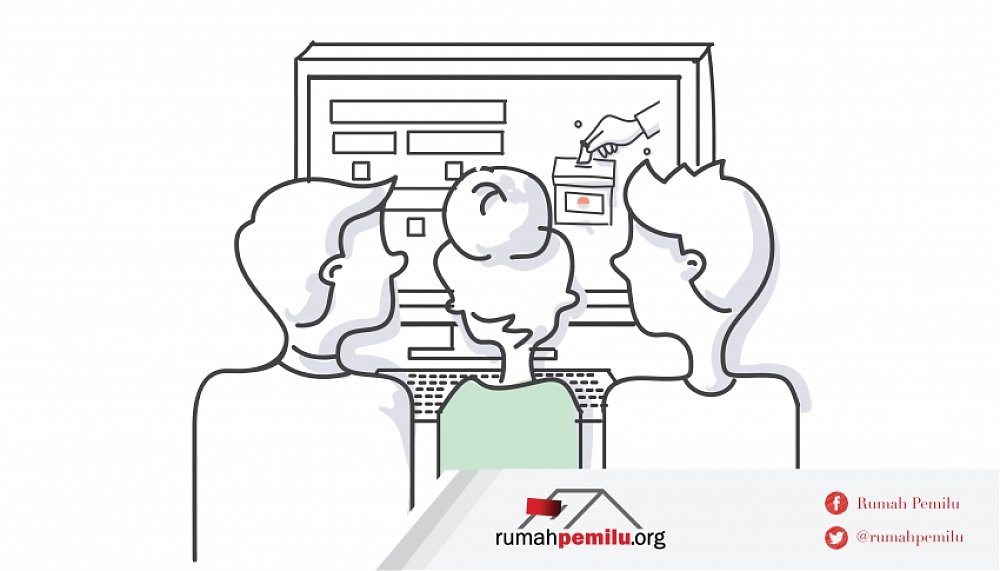1450, mesin cetak pertama ditemukan oleh seorang pengrajin logam berkebangsaan Jerman bernama Johannes Gutenberg. Penemuan itu merevolusi cara informasi diproduksi dan disebarkan. Buku-buku lebih banyak dicetak. Media pers berkembang pesat.
Alur sejarah kemudian sampai pada masa dibukanya akses internet atau world wide web kepada publik pada 1989. Persebaran informasi menjadi semakin cepat juga, dan dapat diakses dari mana pun selama tersambung dengan jaringan internet.
Tumbuh besarnya ekosistem informasi yang merambah ruang digital membuka kerentanan akibat tak diiringi oleh kemampuan literasi dan berpikir kritis masyarakat. Disinformasi menambah parah fenomena misinformasi.
Berdasarkan survei Literasi Digital tahun 2021, skor literasi digital di Indonesia berada pada angka 3,49 dari skala 1-5 atau sedang. Sementara itu, tren penggunaan internet selama pandemi meningkat. Di 2019, merujuk pada survei Indikator Politik, 50 persen warga menggunakan internet. Pada 2022, angka ini mencapai 74 persen.
Banyak pihak menanti untuk menguji ketangguhan publik Indonesia menghadapi arus informasi di tahun politik 2024. Pasalnya, politik electoral 2024 lebih kompetitif dari Pemilu 2019. Tak ada petahana, dan selisih elektabilitas bakal calon presiden dari survei-survei yang beredar bisa dikejar.
“Sekarang kan ketat. Mas Anies yang peringkat ketiga selisihnya hanya 10 persen dengan peringkat kedua. Kalau undecided voters semuanya ke Mas Anies, dia bisa masuk putaran kedua. Jadi, 2024 lebih ketat dari 2019. Jadi, kemungkinan, politik identitas dan misinformasi lebih besar terjadi. Karena, marginal effect satu suara bisa membedakan siapa yang menang dan siapa yang kalah,” ujar Direktur Eksekutif Indikator Politik Indonesia, Burhanuddin Muhtadi, pada diskusi “Potensi Penyebaran Misinformasi dalam Pemilu 2024” di gedung Pakarti Center, Jakarta Pusat (12/7).
Burhan meyakini, semakin banyak orang yang terkoneksi dengan internet, maka keterpaparan terhadap misinformasi juga akan meningkat.
“Nah, apakah peningkatan itu seiring dengan meningkatkan keyakinan terhadap misinformasi? Kalau iya, bahaya,” pungkas Burhan.
Jebakan selective exposure dan propaganda politik
Dari studi literatur yang dilakukan dalam kajian Burhan, ada dua isu misinformasi yang paling mudah menyebar, yakni isu politik dan agama. Di Indonesia, perkawinan keduanya bukan sesuatu yang jarang ditemukan.
Kepercayaan terhadap misinformasi ditentukan oleh faktor internal dan eksternal. Faktor internal yaitu bias konfirmasi yang terjadi karena seseorang mencari pandangan dan informasi untuk mengkonfirmasi pendapatnya. Dengan kata lain, sikap dan preferensi seseorang mempengaruhi dirinya dalam memilih media dan informasi yang ia terima, bukan sebaliknya.
“Orang seringkali mencari pandangan untuk memperteguh pandangan dirinya, dan menghindari informasi yang bertentangan dengan pendapatnya. People hear what they want to hear. Itu yang disebut oleh ilmu psikologi sebagai bias konfirmasi,” terang Burhan.
Kecenderungan bias konfirmasi diperparah dengan algoritma media sosial yang tidak mendukung tumbuhnya dialog antar pengguna dari perspektif yang berbeda. Dampaknya, pengguna hanya terpapar oleh informasi atau pendapat yang berasal dari orang-orang yang memiliki preferensi yang sama dengan dirinya.
“Mereka ramai, tetapi dengan kawan sesama grupnya. Jadi, gak ada percakapan atau tukar menukar informasi yang berbeda di situ,” tukas Burhan.
Sementara itu, faktor eksternal yang menentukan kepercayaan terhadap misinformasi ialah eksposur pesan-pesan di media.
Hasil survei yang dilakukan Indikator Politik pada Pemilu 2019 menunjukkan bahwa meskipun pemilih menggunakan media sosial untuk memperoleh informasi, namun hal tersebut tidak berkorelasi pada keyakinan pemilih terhadap misinformasi.
“Artinya, media sosial itu gak bisa dipersalahkan. Bukan karena kita akses media sosial, lalu kita percaya isu yang aneh-aneh itu, tetapi sikap partisannya yang menentukan. Ketika dia mau memilih Jokowi, dia cenderung tidak percaya pada misinformasi yang menyerang Jokowi. Dan ketika dia pendukung Prabowo, dia cenderung percaya yang buruk-buruk tentang Jokowi,” jelas Burhan.
Tantangan di Pemilu 2024, lanjut Burhan, ialah mengedukasi agar publik kritis dan tidak percaya pada dis dan misinformasi, terlepas dari preferensi politik masing-masing.
Buzzer dan intrik elit politik turut sebabkan gangguan informasi
Peneliti Centre for Strategic and International Studies (CSIS), Arya Fernandez menjelaskan bahwa gangguan informasi, termasuk mis dan disinformasi, juga dipengaruhi oleh sikap partisan buzzer atau pendengung. Sebagai strategi pemenangan, tentara siber kerap dipekerjakan oleh partai politik dan calon untuk melakukan propaganda politik. Tak semua propaganda politik memuat disinformasi, namun biasanya hanya memuat half truth atau kebenaran yang dipilah berdasarkan kepentingan tertentu.
Dari analisis yang dilakukan CSIS terhadap data Google Trend, intrik elit politik juga menyebabkan gangguan informasi. Sebagai contoh, pencarian mengenai Pemilu 2024 sangat tinggi pada Januari 2023. Tingginya data pencarian dikarenakan adanya momen konferensi pers Partai Demokrasi Indonesia Perjuangan (PDIP) yang menyampaikan kisi-kisi calon presiden yang akan diusung.
Atensi publik terhadap Pemilu 2024 juga terjadi kala Presiden Joko Widodo bertemu Ketua Umum Partai NasDem, Surya Paloh, pada 26 Januari.
“Yang menarik, sebagian besar tingginya atensi mesin pencari Google terkait Pemilu 2024, justru berasal dari manuver politik yang dilakukan Pak Jokowi. Misalnya di 31 Januari, Pak Jokowi menghadiri hari ulang tahun PSI (Partai Solidaritas Indonesia), dan dia mengatakan soal pencapresan. Kemudian di Mei, Pak Jokowi menghadiri acara musra (musyawarah rakyat) dan mengatakan Indonesia butuh pemimpin yang berani. Lalu 29 Mei, Pak Jokowi bertemu pimpinan media massa dan content creator, dan mengatakan akan cawe-cawe di Pilpres (Pemilu Presiden),” urai Arya pada diskusi yang sama.
Arya memprediksi penyebaran disinformasi akan meningkat pasca pengumuman kandidat definitif dan masa kampanye resmi pada 28 November hingga 10 Februari 2024. []
AMALIA SALABI











